1 - Expected post-Chinafy results
5 Key Differences Between Google and Baidu Search Engines
In this article, we’ll delve into the fundamentals of Google and Baidu and highlight the key differences between these two search giants.
A Brief History: Google vs. Baidu

Google's journey began earlier, in September 1998, when Larry Page and Sergey Brin founded the company in a garage. Google quickly rose to prominence with its revolutionary PageRank algorithm, transforming the way search engines ranked web pages. The name "Google" itself reflects the founders' mission to organize the immense amount of information available on the web (a play on the word "googol").
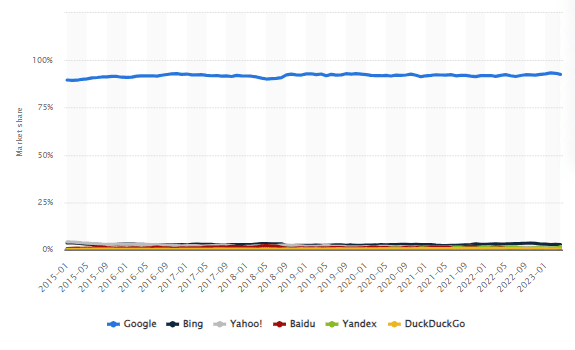
Market share of leading search engines worldwide from January 2015 to April 2023. Image from Statista
Google's global market share is staggering, commanding over 90% of the search engine market worldwide. The company's influence extends beyond search, with products and services like Gmail, Google Maps, and YouTube shaping the digital landscape globally.

Baidu
Founded in January 2000 by Robin Li and Eric Xu, Baidu has become synonymous with internet search in China. The name "Baidu" is inspired by a Song Dynasty poem and translates to "search for one's dream." Initially launched as a search engine, Baidu has evolved into a multifaceted technology company, offering services such as maps, online encyclopedias, and cloud storage.
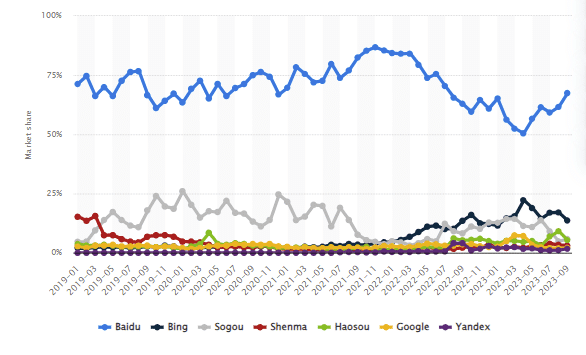
Leading search engines in China 2019-2023 by market share. Image from Statista
Baidu's dominance in the Chinese market is unparalleled, holding over 70% of the search engine market share. The company's success can be attributed to its deep understanding of the Chinese language, culture, and regulatory environment, positioning itself as the go-to search engine for over a billion users.
5 Key Differences Between Google and Baidu
Language and Content
Google: Offers a multilingual platform with country-specific domains to provide users with localized search results and services tailored to specific regions.
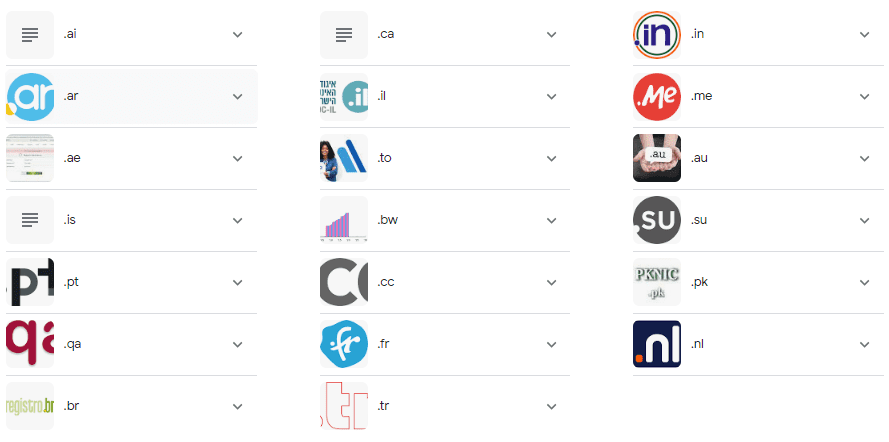
Google Country Code Top-Level Domains. From sources across the web
Baidu: Primarily focuses on Chinese language content, making it the preferred choice for users seeking information in Chinese, namely simplified Chinese.
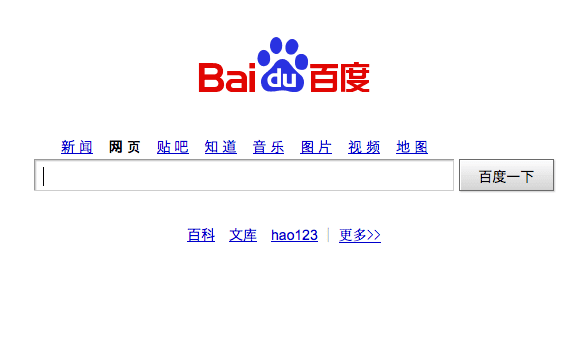
Baidu Search Bar. Image from Digital Crew
User Interface Design
Google: Adheres to a minimalist and clean interface, emphasizing a user-friendly and uncluttered design.

Google App Home Screen. Image from PALOIT
Baidu: Features a homepage with abundant information, often incorporating news, popular searches, and trending topics.
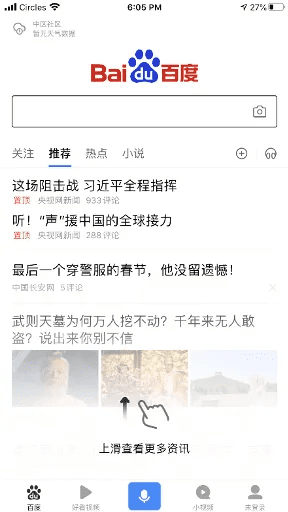
Baidu APP Home Screen. Image from PALOIT
Censorship and Regulation
Google: Google China’s search engine was launched in 2006 and abruptly pulled from Mainland China in 2010. They have largely taken an “everything but search” approach since. It is important to note that most Google’s services - are inaccessible from China. This is inclusive of Google APIs, Firebase, Google Maps, Google Fonts and more.
Baidu: Baidu readily and fully complies with China's censorship laws.
Learn about “ The China Personal Information Protection Law (PIPL)”
Advertising Dominance
Google: Prioritizes organic search results, with paid advertising taking a more supplementary role in the user experience.
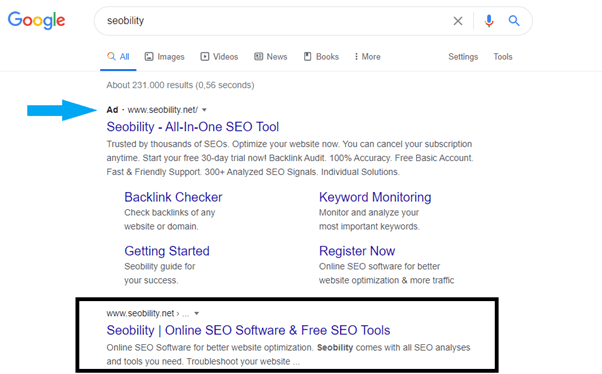
Example of a Google Search Ad blending with organic search results. Image from SEObility
Baidu: Paid search results are similarly more prominent, with advertising playing a significant role in search engine results. Depending on ad format, Baidu advertisements can take up more of a page than advertisements on Google itself.
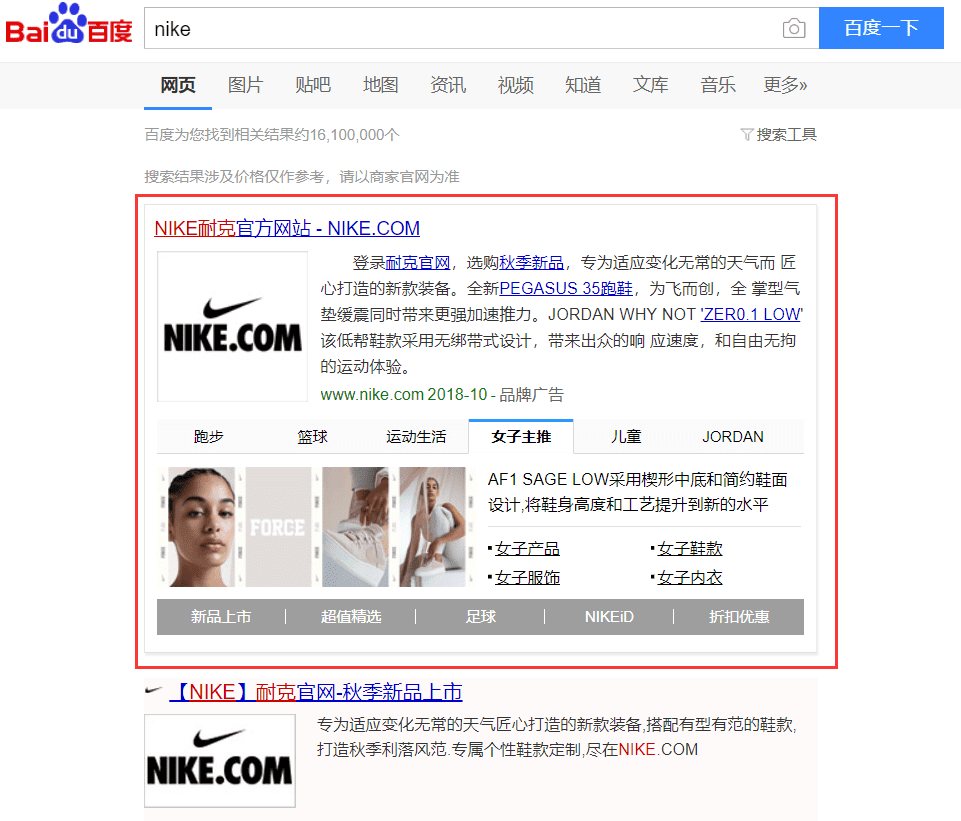
Example of Baidu BrandZone Ad for Nike. Brandzone covers a large portion of the screen and gives people a visual impact. Image from The Egg
Social Integration

Google+ Feed. Image from WIRED
Google: Previously integrated with Google+, a social networking platform (discontinued in 2019), with limited impact on search results.
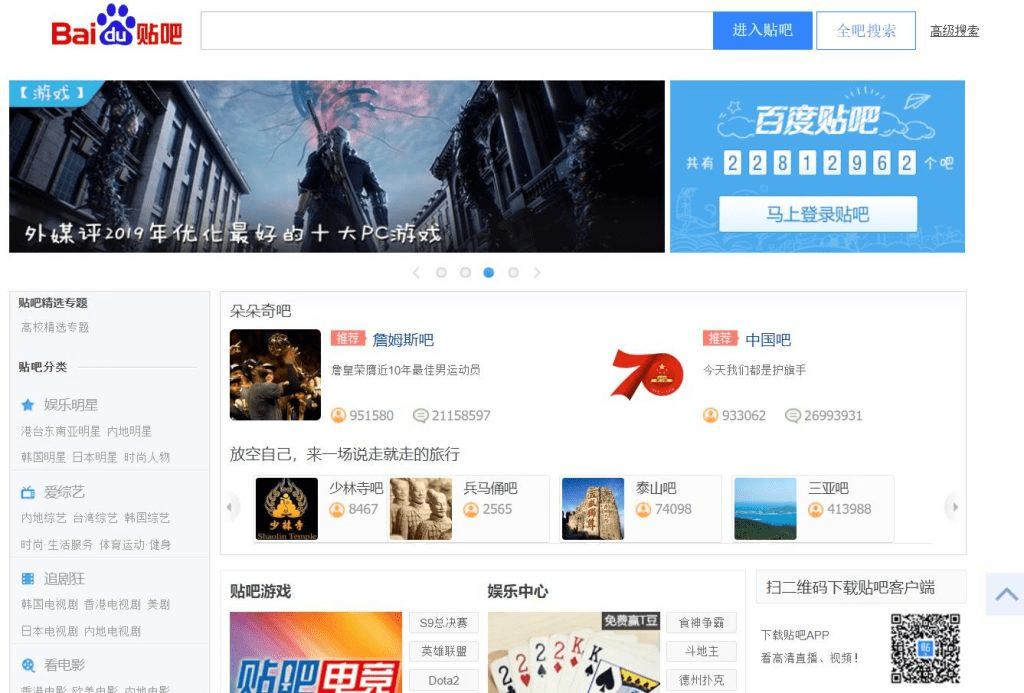
Baidu Tieba Homepage. Image from Sekkei Digital Group
Baidu: Integrates with Baidu Tieba, a popular interest-based online forum platform, Tieba literally means "let's post articles".
Web and Search Optimization for Google and Baidu
SEO strategies for Google and Baidu share similarities. For instance, both search engines prioritize high-quality, relevant content, and effective keyword usage. In addition, link-building strategies are essential for Google and Baidu, emphasizing on the significance of authoritative and relevant backlinks.
However, a distinctive challenge arises when optimizing for Baidu – compatibility issues. Certain resources commonly used on international websites, such as Facebook and YouTube, may be inaccessible in China. This poses a hindrance to a seamless user experience.

Addressing this unique challenge is a specialized tool for web optimisation in China - Chinafy. Chinafy is the only China web compatibility solution that identifies, modifies, and substitutes incompatible resources to ensure they load quickly and completely in China. Used in conjunction with fully managed Content Delivery Networks (CDNs), the platform also identifies slow resources and accelerates them as needed.
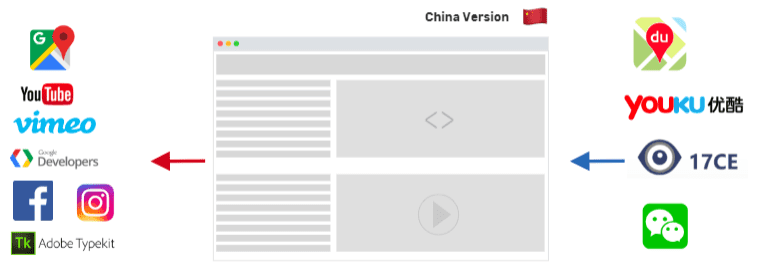
Read more on “Why websites don't work in China”
Below is a table summary of the key differences between Google and Baidu
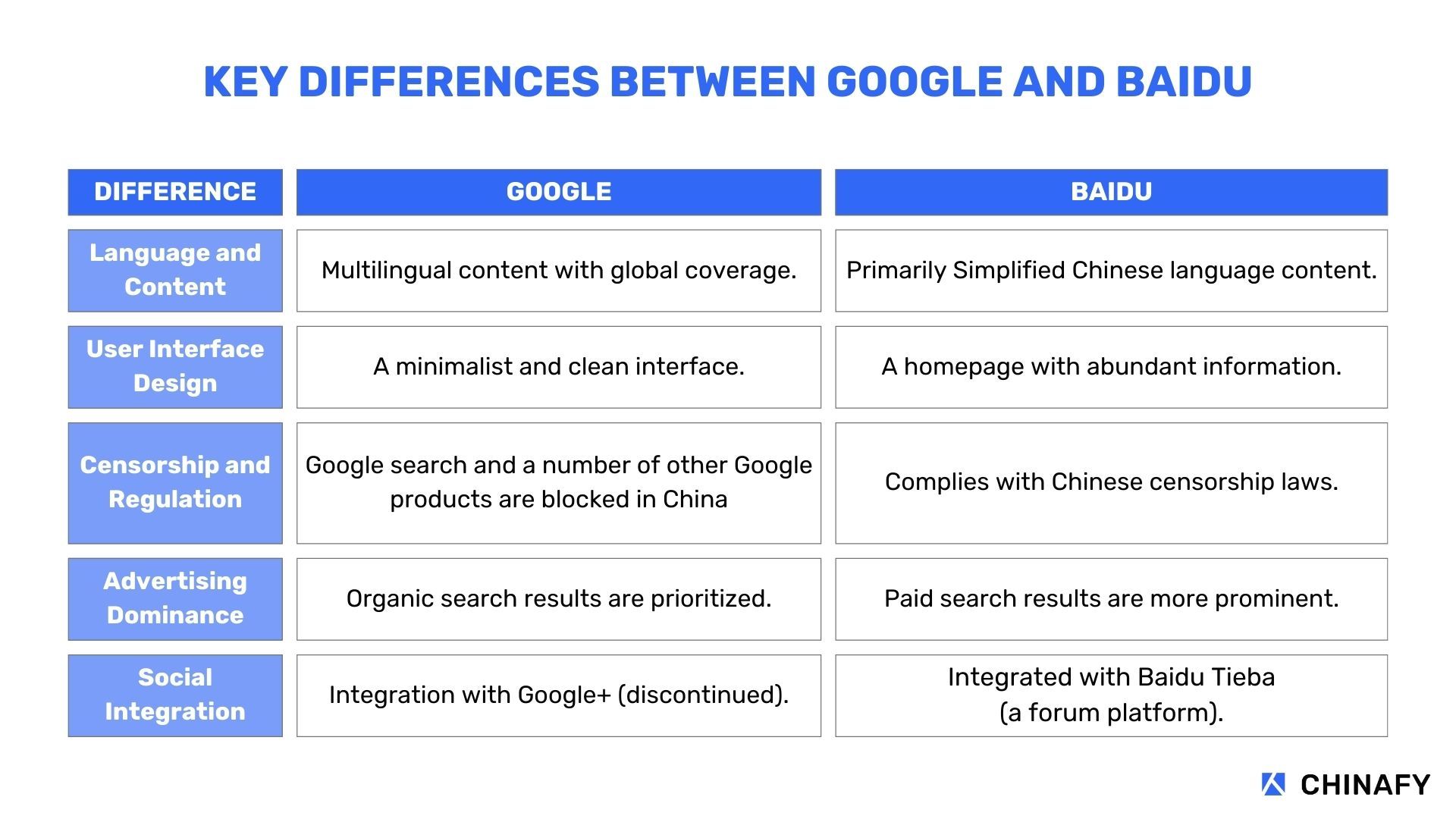
Ready to optimize your website for China? Click Get Started to evaluate your website with Chinafy



1 - Expected post-Chinafy results






























